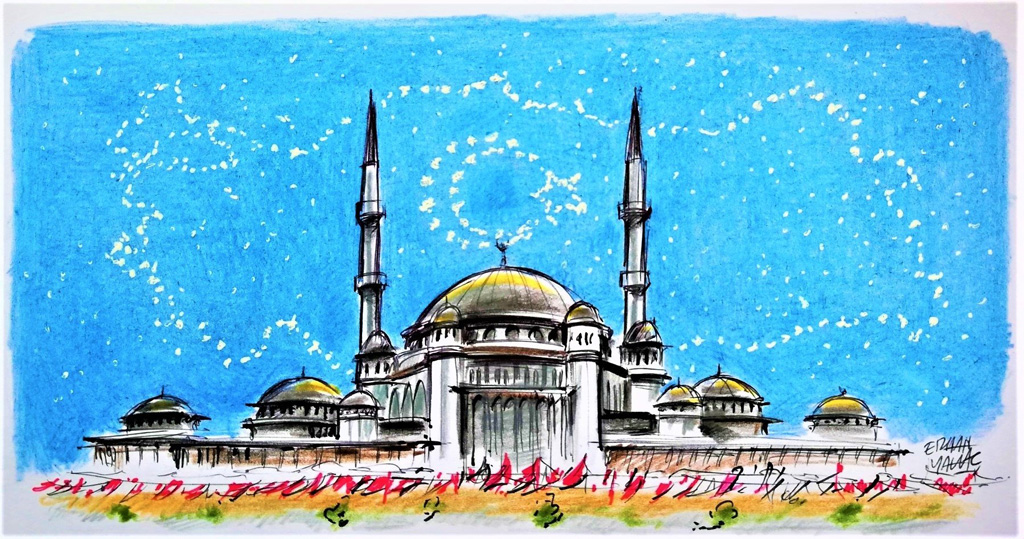A symbolic sign
Indeed, Erdoğan described the Taksim Mosque as “one of the signs of the birth of a great and strong Turkey.” He noted that Friday’s ceremony was “a nod to the Hagia Sophia Grand Mosque” and “a gift on the occasion of the 568th anniversary of the conquest of Istanbul.” Some of Turkey’s secularists are unhappy with that symbolism. Claiming that the city did not need a mosque in Taksim, they describe this latest work as “ideologically charged” and “a show of intellectual and cultural power.” They see the mosque as a symbol that stands against “the symbols of the secular Turkish republic.” It is a fact that strong governments tend to carry out transformations in various areas and initiate symbolic works. The Justice and Development Party (AK Party) chairperson, too, has made a critical impact on Turkey’s course with his actions, choices and statements. Among the services Erdoğan has rendered to the people of Turkey was to make the dreams of conservative Muslims come true. The toppling of the secularist tutelage, the abolishment of the headscarf ban and the liberalization of religious instruction support that claim. He also boosted the self-confidence of religious people to help them confront the world. The Hagia Sophia’s reopening and the construction of the Grand Çamlıca and Taksim mosques also support that view. One could certainly come up with more examples.Brand of politics
What matters is what purpose those symbolic services and works serve – and what they oppose. It makes no sense to attempt to position Erdoğan’s brand of politics “against the Republic.” Quite the contrary, he subscribes to a political view that positions the Republic as a supreme value for all social groups. Hence his efforts to curb the extremism of pro-Western positivist modernism, which was dominant over the Ottoman-Turkish modernization for two centuries. He also made notable accomplishments on that front. That’s why the Taksim Mosque represents a fresh step toward the realization of the nation’s will. It is an embodiment of the Turkish people’s religious needs and national self-confidence. One could call it “the integration of the center and periphery” or “the final cornerstone of Turkey’s century-old quest for normalization.” One could also call it “a sign of the Turkish people’s ability to create their own modernity.” There is no need for ideological concerns or rhetorical fights. May this blessed opening serve our nation well. The Taksim Mosque is indeed a gift for the Republic’s second century.
[Daily Sabah, June 1 2021]








